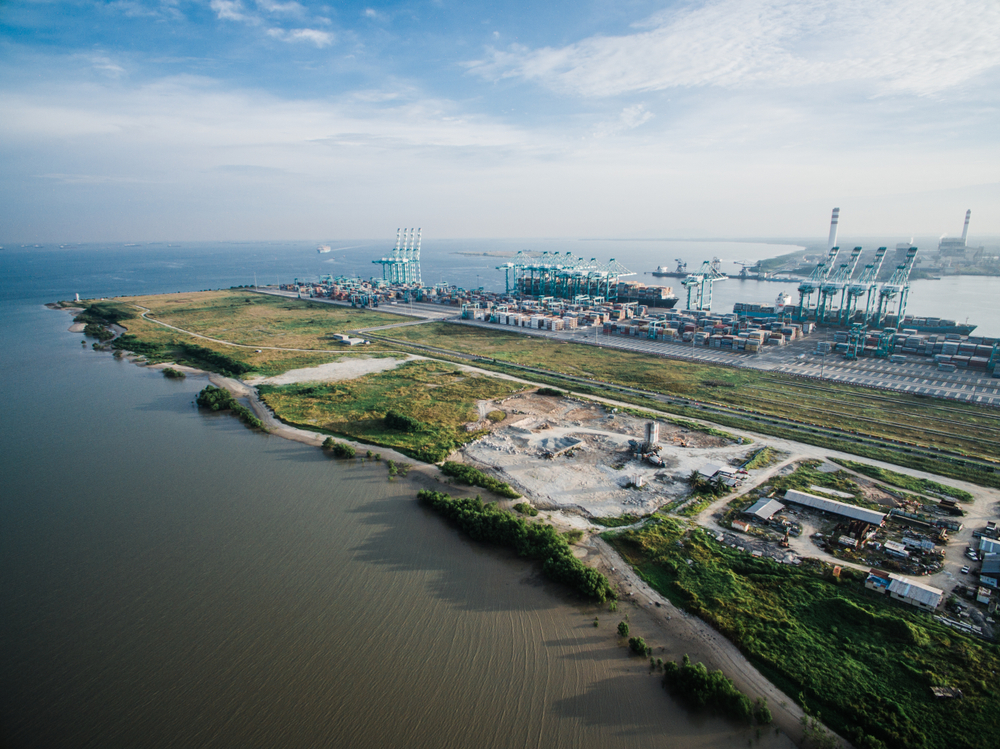Malaysia’s industrial and retail property segments thrive in Q2
Batu Kawan Industrial Park, which is being developed into a smart, high-tech industrial park, is believed to attract more foreign investors

Malaysia’ economy grew at a fast pace in Q2 According to Bank Negara Malaysia, the full-year growth will be between 5.3 percent and 6.3 percent before slowing to 4.6 percent in 2023.
The country’ industrial real estate segment is steadily recovering despite rising inflation, reported theSun. In recent years, it has grown mainly due to the increased penetration rate of e-commerce, to which higher warehousing space requirements and the shift towards omnichannel retailing are the key contributors.
“The main concerns among manufacturers and logistics players are rising transportation costs, shortage of labour, and disruption in [the] supply chain. With more multinational companies setting up new businesses and facilities within the Asean region, Malaysia is expected to benefit from this diversification and reshaping of global supply chain strategies,” mentioned Judy Ong, research and consultancy senior executive director at Knight Frank Malaysia.
He added that the country’s industrial property market continues to entice new and potential inventors, and that many of them are venturing into large industrial and warehousing developments. Experts also believe that the segment could be the answer to Penang’s demand for logistics facilities in accordance with the growing e-commerce and logistics sector.
Batu Kawan Industrial Park, which is being developed into a smart, high-tech industrial park, for example, is believed to attract more foreign investors.
More: Malaysia’s real estate sector may return to pre-pandemic levels by 2023, experts say
Logistics in Johor are also thriving, with Tanjung Pelepas Port’s annual volume increasing, and the Free Zone’s expansion set to be complete in 2023, according to The Malaysian Reserve.
Regarding the retail property segment, Keith Ooi, group deputy managing director for Knight Frank Malaysia, stated that the Malaysian Institute of Economic Research (MIER) Consumer Sentiments Index climbed to a new high of 108.9 points in Q1 2022, which was beyond the 100-point optimism threshold. Consumers’ hope for higher incomes and more employment opportunities were key drivers for the positive score during the review period.
Along with renovations, the pandemic’s impact on customer behavior and the acceleration of digitalisation have prompted retailers and mall operators to implement omnichannel strategies in an effort to boost engagement and sales.
The Property Report editors wrote this article. For more information, email: [email protected].
Recommended
Why everyone is moving to Selangor and Johor: Malaysia’s real estate comeback
Malaysia’s upturn in fortunes is especially prevalent in secondary destinations such as Selangor and Johor
Penang’s silicon boom: How the US-China tech war is supercharging local real estate
Penang’s booming semiconductor industry has created ripples within the local real estate sector
New leader, new opportunities: How Hun Manet is shaking up Cambodia’s real estate game
Hun Manet is overseeing decent economic growth and widening access to the country’s real estate market for foreigners
Singapore embraces inclusive housing reforms amid resilient demand
The Lion City’s regulatory strength continues to exert appeal for international investors








